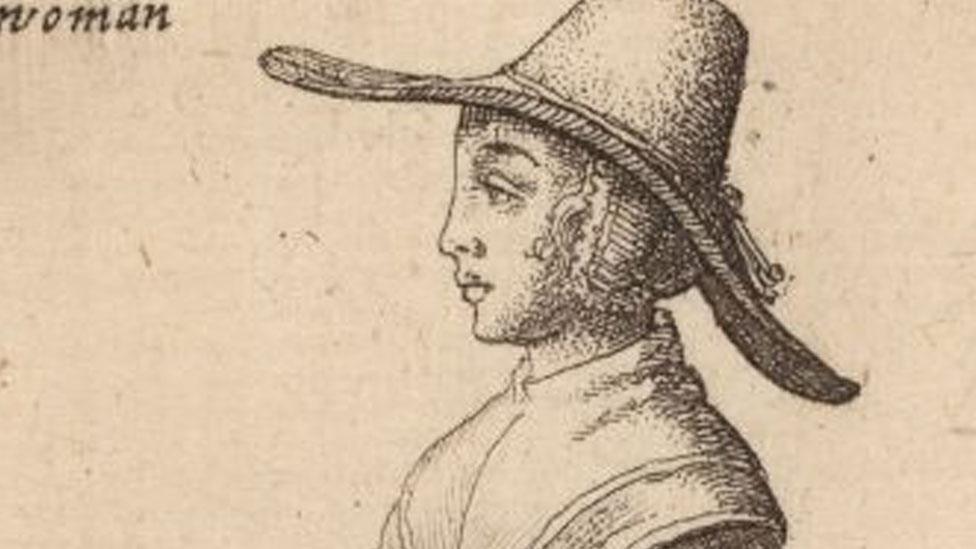Legal battles of 17th Century foster mums revealed
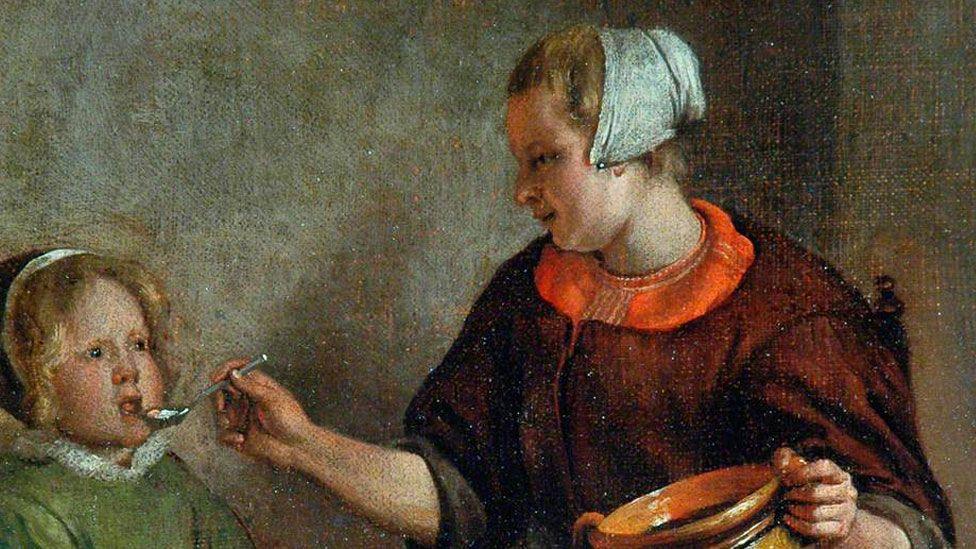
The petitions offer a rare glimpse into the little-heard or recorded stories of 17th Century working women, in their own words
- Published
A rare collection of 300-year-old petitions has revealed the legal battles of foster mothers to get financial help for taking in parentless children, according to a researcher.
Cambridge University PhD student Emily Rhodes delved into petitions submitted by women to the Lancashire quarter sessions courts between 1660 and 1720.
In one case, Alice Brewer of Lea struggled for years as the parish cut and withheld payments for "a poor distressed child", in another, Elizabeth Drinkwater was "impoverished" after the Great Bolton overseers failed to pay up for nine months.
Ms Rhodes said the cases showed 17th Century foster mothers had greater powers to challenge authorities than biological mothers.
"These women provided such a vital role that when they weren’t paid enough or at all, they had enough authority to approach their county justices, powerful men, and successfully argue their case," she said.
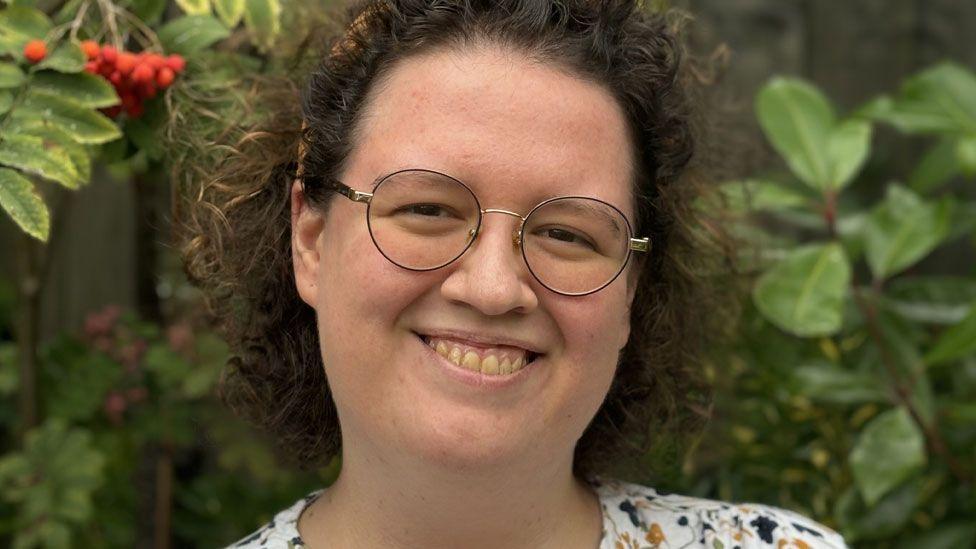
Emily Rhodes "stumbled across" their stories during her PhD research into 17th Century mothers
In a study published in The History of Family journal, external, Ms Rhodes looked at the experiences of 38 women caring for non-kin children in their parish and who took their cases to courts sitting in Lancaster, Preston, Manchester, Wigan and Ormskirk.
Traditionally, this work was called "boarding" or "tabling", but it had many similarities with modern fostering, with the parish authorities judging if the family situation was suitable for the children.
Ms Rhodes said: "When they decided it wasn’t, they sought to place them in a new home, ideally with somebody from their local community, and they compensated this person to look after the child."
The women were often widows, sometimes unmarried, and occasionally a husband took the decision on behalf of the family.
"In their petitions they refer to 'the child was put on me' or 'the husband decided this' and the woman has had to continue the arrangement itself; it is not consensual," said Ms Rhodes.
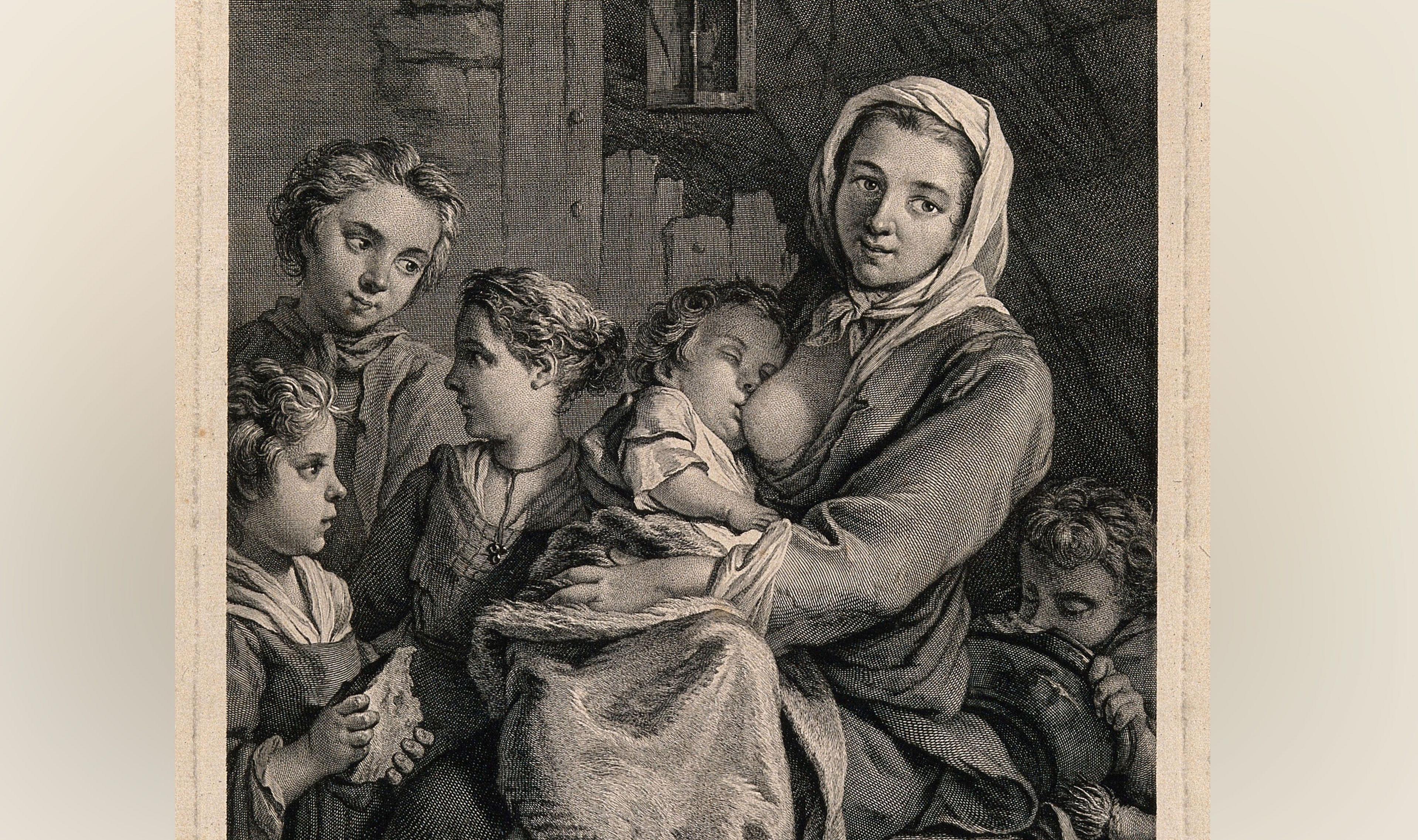
Petitions "boomed in the 17th Century", giving men and women, rich and poor, a system to resolve conflicts in the courts, in Parliament or before the monarch
Most of the women were entitled to poor relief in their own right under the Poor Laws, a system which saw parishioners contributing to a local pot of money.
The funds were allocated by churchwardens and overseers of the poor to the parish needy.
It could provide poor women and families with vital income. The standard payment for one child was 40 shillings a year, although they ranged from 12 to 78 shillings - this far exceeded average poor relief payments of the time.
Forty shillings was the equivalent of about £227 in today's money, external - or 28 days of a skilled tradesman's wages.
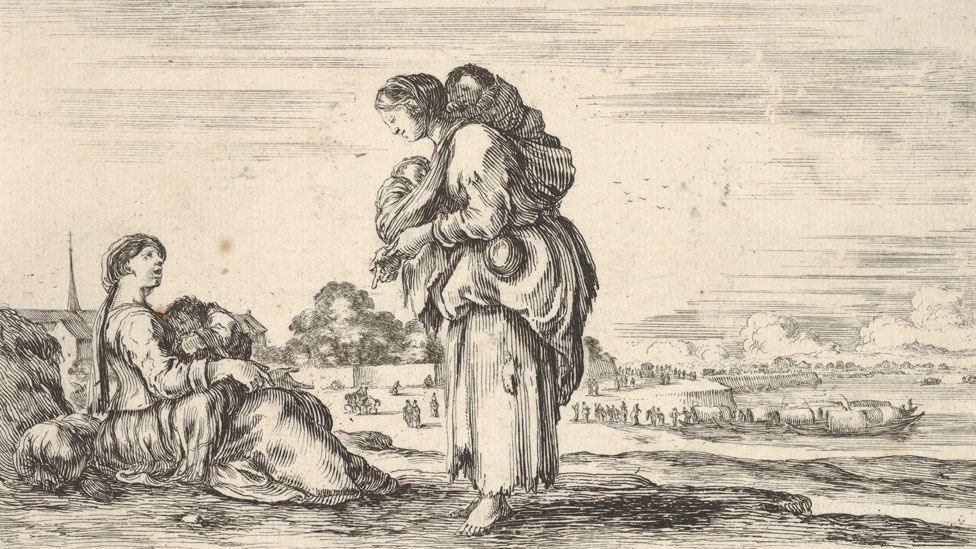
Many of the Lancashire foster mothers were illiterate but could still use the system to bring a legal case - or petition - against those who owed them money for feeding and clothing the children
Records show Anne Beesley took in three destitute children in Barton in 1671, fearing "they would starve to death" - but was only reimbursed after she petitioned the courts.
She still had significant advantages over biological mothers, said Ms Rhodes, who had to "prove, in a grovelling and pitiful tone, that they were among the deserving poor".
For foster mothers it was enough to say "you’re not fulfilling your part of the deal".
Ms Rhodes also sees parallels with the present.
"You will see stories of foster carers not receiving enough support and leaving the system," she said.
"We still face issues with bureaucracy and people in authority not doing their jobs properly."
Get in touch
Do you have a story suggestion for Cambridgeshire?
Follow Cambridgeshire news on BBC Sounds, Facebook, external, Instagram, external and X, external.
- Published11 July 2024
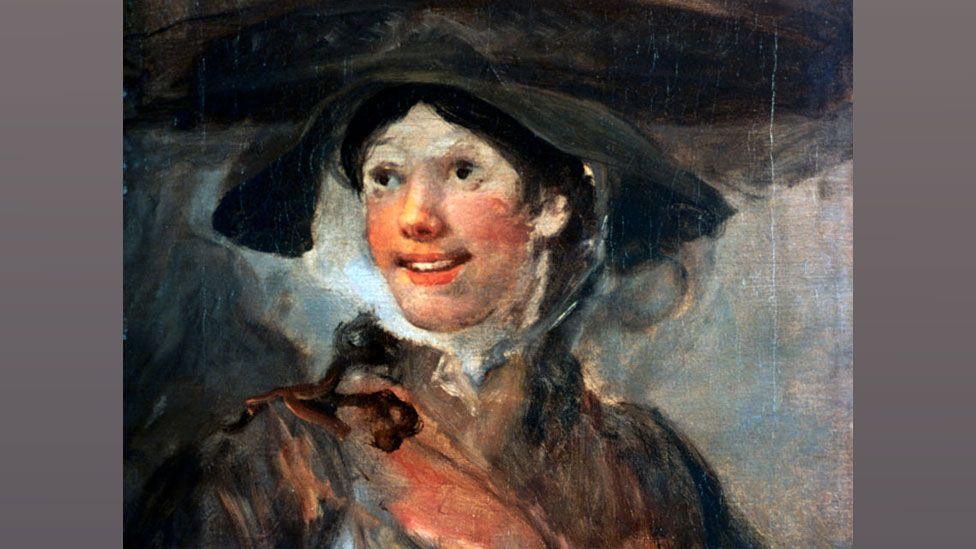
- Published5 April 2024
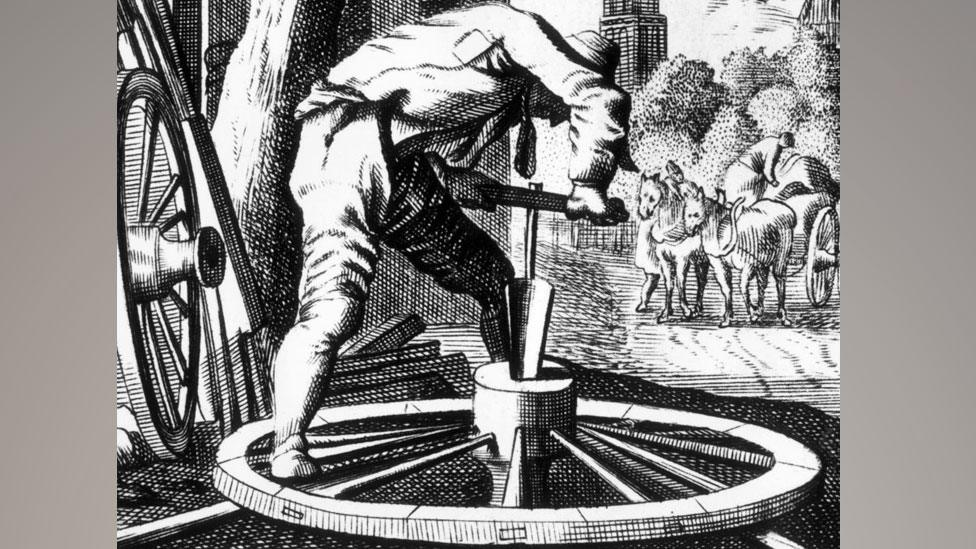
- Published14 January 2024
